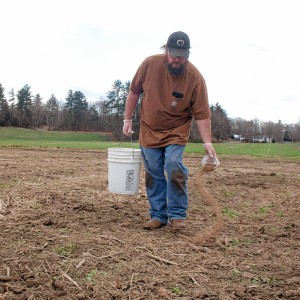Confusion surrounds implementation of recreational marijuana law
| Published: 04-01-2017 12:55 AM |
BOSTON — Conflicting proposals from state lawmakers to implement the recreational marijuana law voters passed last fall has left Massachusetts cities and towns struggling to cope with confusion, and calls into question whether the regulated industry will be in place by next summer.
And that’s before lawmakers deal with signals from Washington that the Trump administration may enforce the overall federal ban on marijuana sale and use.
The Legislature’s Committee on Marijuana Policy and the treasurer’s office are leading the effort to figure out regulation, structure and method to set up the framework before July 2018.
The November ballot question that supports taxing and regulating marijuana passed with about 53 percent of the vote. The measure allows adults over the age of 21 to smoke, purchase and grow some marijuana at home.
“There’s a lot of people (who are) very, very interested and have a variety of opinions and a variety of facts,” said Sen. Patricia Jehlen, who co-chairs the Joint Committee on Marijuana Policy. “We’re trying to understand some things, but we are trying to stick to the will of the voters and make any adjustments that are necessary.”
Jehlen, D-Somerville, has supported legalization while co-chair Rep. Mark Cusack, D-Braintree, has declined to say how he voted for the measure.
Officials including Gov. Charlie Baker, House Speaker Robert DeLeo, Attorney General Maura Healey and Boston Mayor Martin Walsh were against marijuana legalization while Senate President Stanley Rosenberg supported it.
Since mid-December, adults in the Bay State have been able to possess and use marijuana, but not sell it. Shops were initially scheduled to open in January 2018.
Article continues after...
Yesterday's Most Read Articles
The Department of Revenue estimates that the state could reap up to $172 million in annual tax revenue per year from recreational marijuana sales.
Buyers would have to pay the state’s 6.25 percent sales tax and an additional tax of 3.75 percent, which is lower than rates in other states with legalized marijuana. Municipalities can also choose to tax 2 percent on top of sales and excise taxes.
The marijuana policy committee is working on an omnibus bill expected in June that would help address issues related to the ballot initiative.
Nearly 50 bills have been referred to the committee, which held its first public hearing March 20.
Some legislation calls for repealing the referendum entirely and several bills want changes to the law passed by voters, including raising the usage age from 21 to 25 and limiting the number of plants people can grow at home.
Yes on 4 supporters have asked the committee to defer action on legislation until the Cannabis Control Commission, the regulatory body proposed in the ballot, starts writing regulations.
The commission is currently unseated and needs funding to operate.
House co-chair Cusack had a brief exchange with Yes on 4 Campaign Director Will Luzier at the hearing about which group is supposed to initiate any tweaks to the marijuana law.
“In no way do we want to curtail any of your legislative duties,” Luzier said. “We’re saying the proper sequence is to form those legislative duties after you get the recommendations from the group.”
Treasurer Deborah Goldberg has been preparing for shop licensing for the past year and a half.
In December, lawmakers voted to push the opening date for marijuana stores from January to July 2018. The six-month delay gives Goldberg’s office more time to get the industry running.
“Even though the six-month extension was enacted, we still need to keep moving forward quickly, because we will need every bit of that time,” she said in her testimony for the committee. “The six months was not a pause, or we will not be ready even with the new deadline.”
Goldberg’s office, which will oversee the Cannabis Control Commission, has requested money to fund the regulatory body and seat three commissioners, an action shared by supporters of the ballot measure.
Legislators are considering whether to model the commission after the Alcohol and Beverage Control Commission, which is under the Treasury, or one like the Gaming Commission, which is independent.
“I don’t want to give any impression that we don’t appreciate all the work that the treasurer has been doing to get ready, so we want to recognize that,” Jehlen said, “but we want to make sure we have a good model moving forward.”
Despite efforts to create a regulated industry and figure out how to oversee it, the federal government could derail the state’s work.
White House leaders, including Attorney General Jeff Sessions, are interested in greater enforcement against marijuana, which could affect the states that have legalized recreational marijuana.
White House Press Secretary Sean Spicer said the administration doesn’t have a problem with medical use because it has a purpose and clear guidelines to process and regulate use. Any other drug use is still considered illegal, he said.
“I think that when you see something like the opioid addiction crisis blossoming in so many states around this country, the last thing that we should be doing is encouraging people,” Spicer said at a February press conference.
The initiative allows municipalities to bar marijuana shops by majority vote, yet several cities and towns have expressed concern it is unclear about what they can or cannot do.
Jehlen said some communities have had trouble understanding the wording in the law passed on the ballot. The committee will consult with the Massachusetts Municipal Association and the Secretary of State’s office to provide some clarity, she said.
Westborough was the first town to hold a vote to block marijuana stores. Town officials reached out to the state attorney general’s office about the language to use in its bylaws. Communities can use Westborough’s opt-out laws as an example in the meantime, Jehlen said.
As the state grapples with implementing the recreational marijuana law, cities and towns that struggled with medical marijuana implementation are experiencing a similar confusion and lengthy process.
About 63 percent of voters supported medical marijuana passed by ballot vote in 2012, according to the Secretary of State’s office.
One significant difference between the laws is the opt-out process. The recreational law allows voters to decide in a referendum. The medical marijuana law requires a letter of support or non-opposition from the community signed either by the Chief Executive Officer/Chief Administrative Officer, or the City Council, Board of Alderman, or Board of Selectmen.
As a result, it took nearly three years for the first dispensary to open in Salem. Nine dispensaries have been approved to sell and about 200 that have applied since 2015 are still in the approval process, according to the Department of Public Health, which oversees the medicinal marijuana program.
DPH estimates that entire process of licensing, testing, building and inspecting can take up to a year and a half.
“I think people are disappointed that it took a long time to get up and running and perhaps we and learn from those experiences,” Jehlen said.
Jehlen said the committee will continue to have conversations with groups and individuals. There are two remaining hearings left to hear from experts and members of the public.
She expects to work with the Cannabis Control Commission and get feedback if adjustments are needed to the law.
The committee members may visit some existing commercial grow and retail medical marijuana facilities to help envision what the recreational system may look like.
Jehlen said taking as many perspectives and proposals into consideration will help the committee make its decision.
“Everybody wants to protect the public health and safety and everybody wants to avoid young people having access,” she said. “Those are areas of great common agreement and there (are) areas of disagreement in some of the methods of doing that, but I think that all of us want that outcome.”
Mina Corpuz is with the Boston University Statehouse Program.

 Amherst Fire Chief Walter ‘Tim’ Nelson to retire in June
Amherst Fire Chief Walter ‘Tim’ Nelson to retire in June First look at how little Amherst’s police alternative being used called troubling
First look at how little Amherst’s police alternative being used called troubling Petition to block auto dealership on King Street falters in Northampton
Petition to block auto dealership on King Street falters in Northampton  LIME SPREADER
LIME SPREADER
